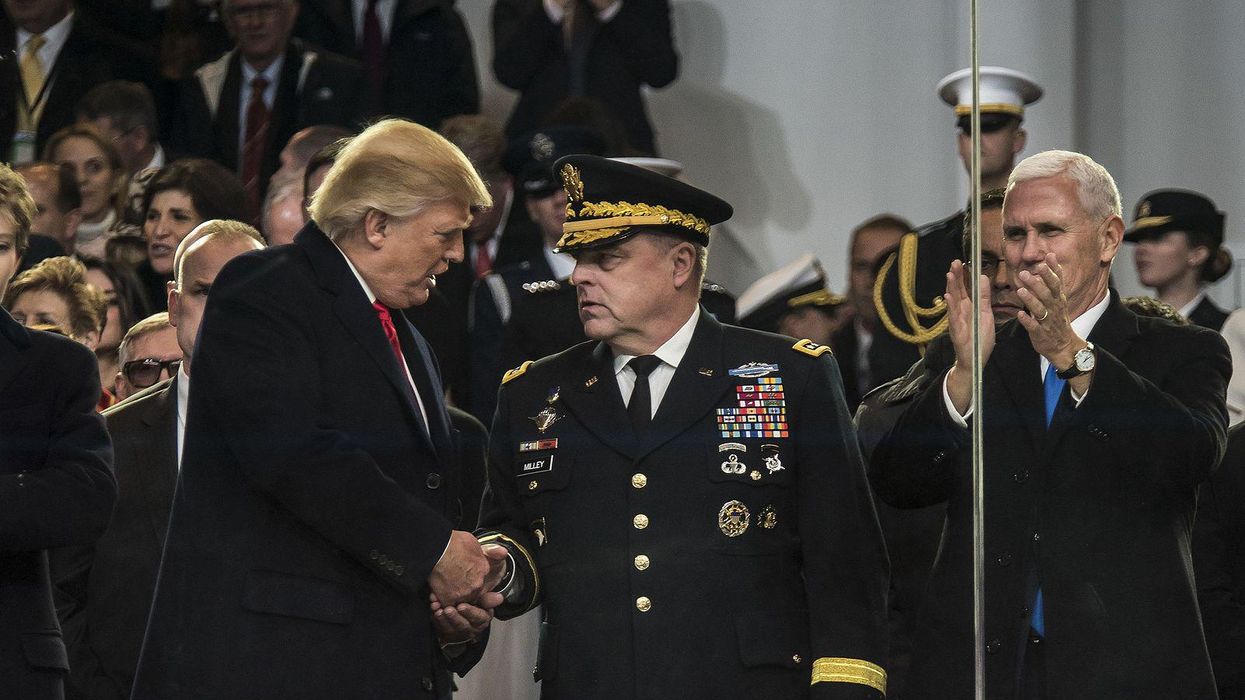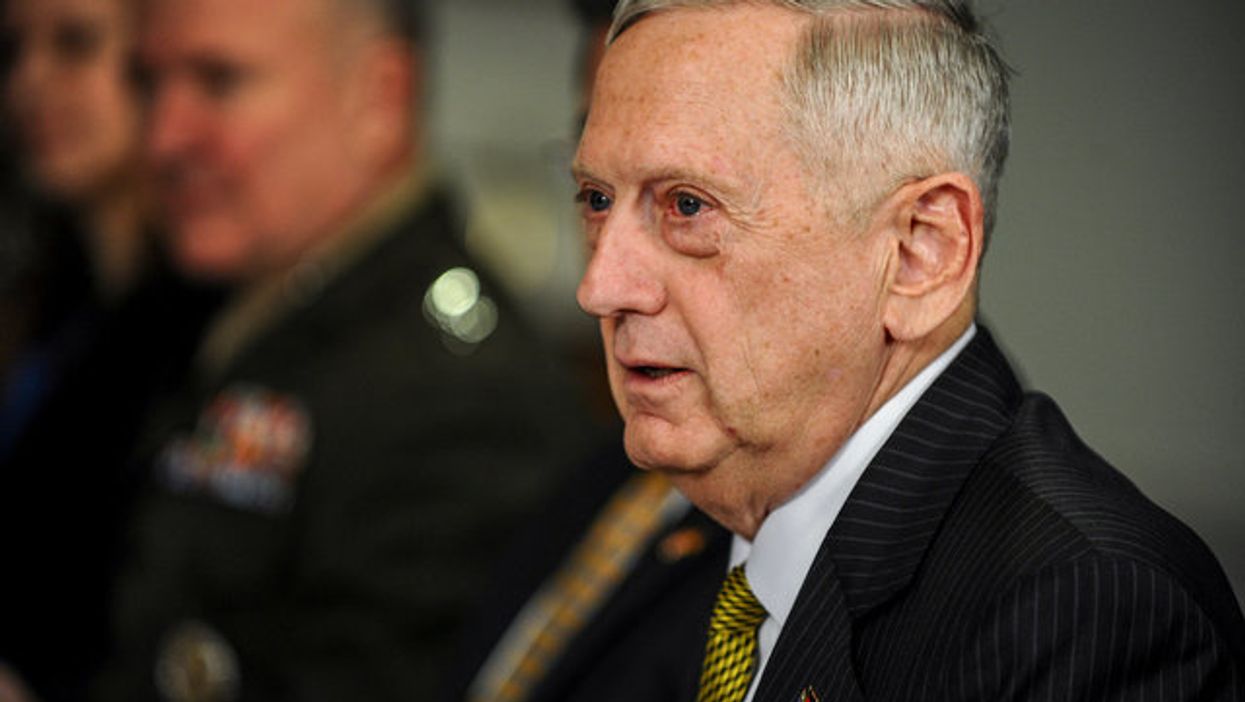Narcissist Trump Disdained The Wounded And Admired The War Criminal
We’ve long known who Donald Trump is: narcissistic, impressed with authoritarian displays, contemptuous of anyone he sees as low status, a man for whom the highest principle is his own self-interest. It’s still shocking to read new accounts of the moments where he’s most willing to come out and show all that, to not even pretend to be anything but what he is—and holy crap, does The Atlantic’s Jeffrey Goldberg have the goods in his new profile of outgoing Joint Chiefs of Staff Chair Mark Milley, which focuses on Milley’s efforts to protect the military as a nonpartisan institution under Trump.
Two moments stand out for Trump’s casual cruelty. In one, a severely wounded Army captain had sung “God Bless America” at the welcome ceremony for Milley as the new Joint Chiefs of Staff chair:
After Avila’s performance, Trump walked over to congratulate him, but then said to Milley, within earshot of several witnesses, “Why do you bring people like that here? No one wants to see that, the wounded.” Never let Avila appear in public again, Trump told Milley.
It’s a moment that echoed Trump mocking a disabled reporter, or reportedly refusing to visit a cemetery for World War II dead in France, saying “Why should I go to that cemetery? It’s filled with losers” and calling dead Marines “suckers.” That cruelty was not how Trump’s reaction to Capt. Mark Avila was reported at the time.
It’s too much to hope that the media will learn its lesson here, of course.
While Trump sees members of the military who are injured or killed as “losers,” “suckers,” and people “no one wants to see,” he is a big fan of those who commit war crimes in a macho way. Goldberg also recounts Milley’s efforts to keep Trump from returning a Navy SEAL pin to Eddie Gallagher, a SEAL found guilty of posing with the corpse of a prisoner who, witnesses testified, Gallagher had stabbed in the neck. Milley argued to Trump that it was up to the SEALs to decide whether Gallagher would keep his pin.
Trump called Gallagher a hero and said he didn’t understand why he was being punished.“Because he slit the throat of a wounded prisoner,” Milley said.
“The guy was going to die anyway,” Trump said.
Milley answered, “Mr. President, we have military ethics and laws about what happens in battle. We can’t do that kind of thing. It’s a war crime.” Trump answered that he didn’t understand “the big deal.” He went on, “You guys”—meaning combat soldiers—“are all just killers. What’s the difference?”
“You guys are all just killers” is a statement breathtaking in its simultaneous characterization of what service members are supposed to do and its dismissal of “war crime” as a meaningful category.
Soldiers are supposed to kill indiscriminately, as far as Trump is concerned. That’s what he wants to see from them. Goldberg also describes how Trump elevated both Milley and former Defense Secretary James Mattis because they fit his mental model of a general. “Trump picked [Milley] as chief because he looks like what Trump thinks a general should look like,” Sen. Angus King told Goldberg. Trump wanted burly old white men who seemed like they’d killed a lot of people and would be happy to do it again, in part because he thought they’d be more likely to go along with whatever he wanted to do.
“The president couldn’t fathom people who served their nation honorably,” John Kelly, a retired Marine general who served as Trump’s White House chief of staff told Goldberg of Milley, but it applies to Trump’s blank response to the concept of a war crime, as well. And, Goldberg reports, Milley more than once had to steer Trump away from committing his own war crimes.
The anecdotes as reported by Goldberg are stunning in their embrace of military violence and disdain for anyone who has been left disabled by it. The picture that emerges of Trump—a picture consistent with everything we’ve seen from him—is of a child playing with toy soldiers, an unquestionable dictator over his little inanimate figures, whose every decision is righteous and who throws the broken soldiers away, angered by their very existence. The problem, of course, is that here we are talking about actual people, and very real war crimes.
Reprinted with permission from Daily Kos.











